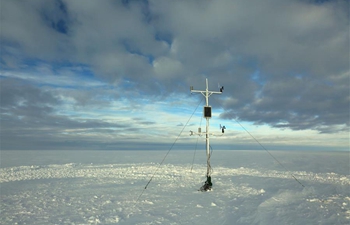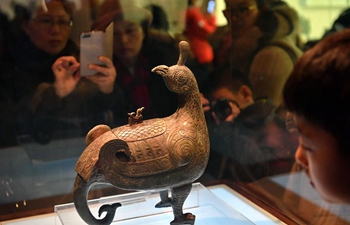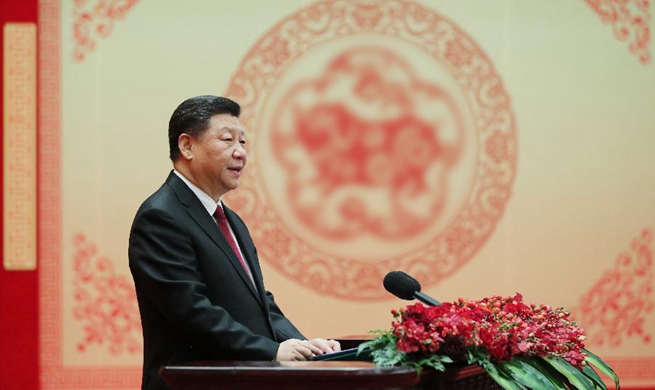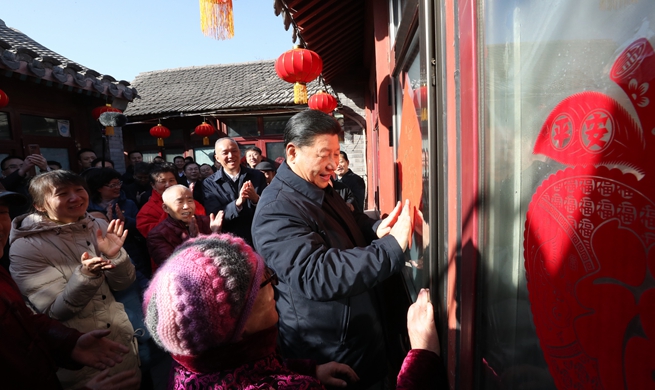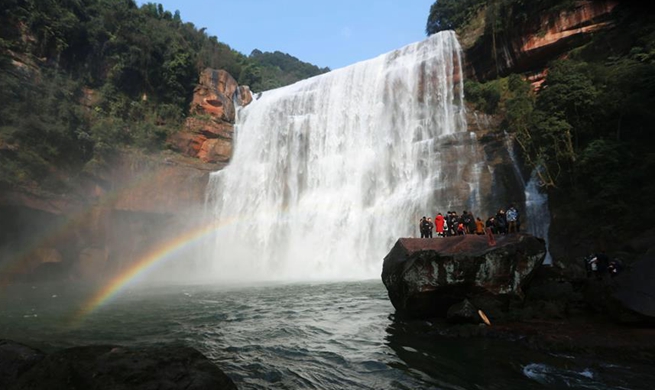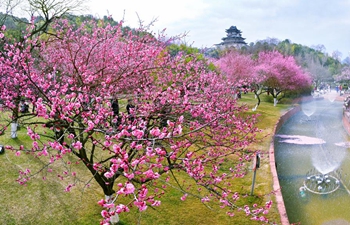DAR ES SALAAM, Feb. 8 (Xinhua) -- The UN High Commissioner for Refugees, Filippo Grandi, on Friday appealed to international donors to double their support to Tanzania in sheltering over 330,000 refugees.
Speaking at the end of his four-day visit to Tanzania, Grandi said Tanzania was in dire need of greater investment in north-west regions where the refugees were hosted, including environmental protection and economic development.
Citing Tanzania as "one of the most important refugee asylum countries in Africa," Grandi expressed his satisfaction with government assurances that the country would continue to be hospitable to refugees.
In his meeting with President John Magufuli on Tuesday, Grandi commended Tanzania for its long tradition of welcoming refugees fleeing conflict and persecution in neighboring countries, including naturalizing 162,000 Burundian refugees from 1972.
Citing Tanzania's hospitality over decades to people in need of refuge, he said that the country and the people deserved greater international recognition.
Grandi pledged to mobilize more support for humanitarian efforts and also for host community development, enhanced camp security and environmental projects, such as energy sources that provide an alternative to firewood.
In his meetings with government officials, Grandi said sustainable refugee return happened when refugees felt confident it was safe to go back home and receive the necessary support to do so.
In the last two years, 57,865 refugees from Burundi have been assisted to voluntarily return from Tanzania.
Grandi said that the UN refugee agency was prepared to work with the government to assist all those who indicated a desire to go home.
"Conditions are still uncertain in both Democratic Republic of Congo (DRC) and Burundi," said Grandi, adding that nevertheless some refugees were volunteering to go back and were supported by the UN refugee agency.
"It is important that nobody is forced back, that repatriation remains a voluntary exercise," said Grandi.
He called for more international support to ensure refugees who return voluntarily are able to successfully reintegrate in their countries of origin, noting the current return packages are insufficient.
Seventy-four percent of Tanzania's refugees and asylum seekers are from Burundi, and the other 26 percent are from the DRC.

